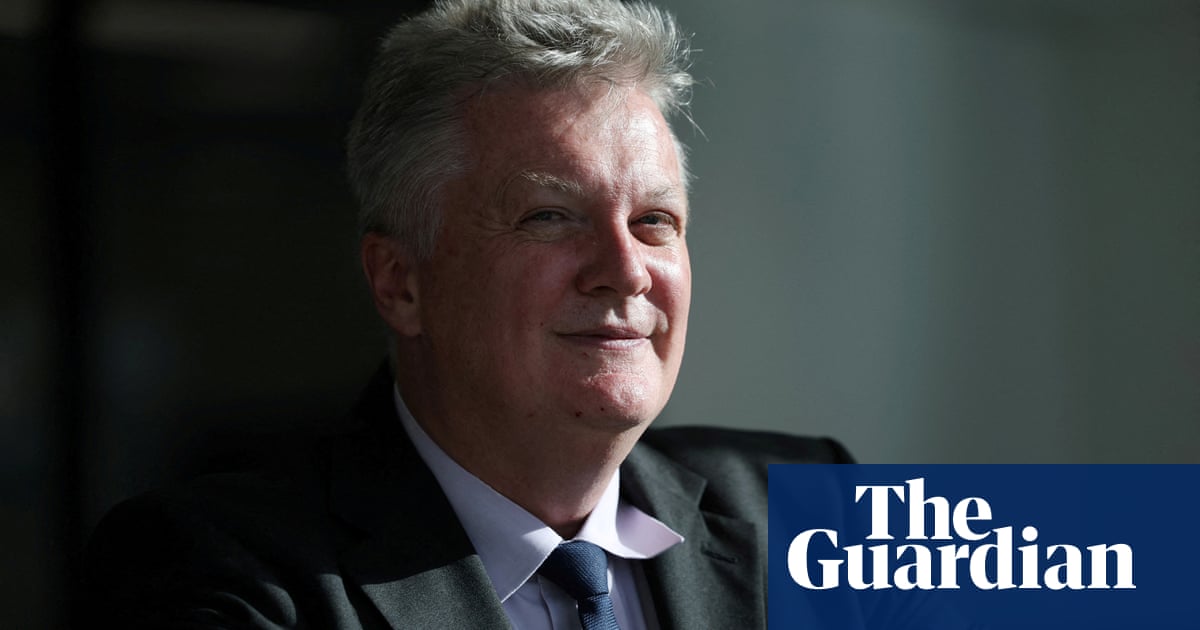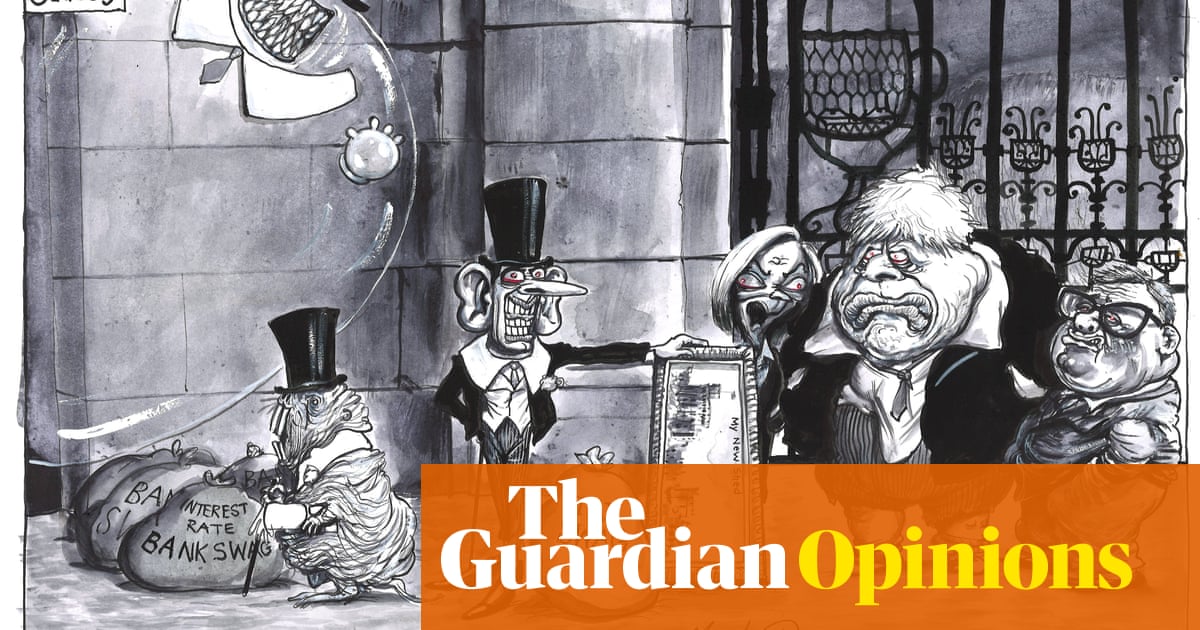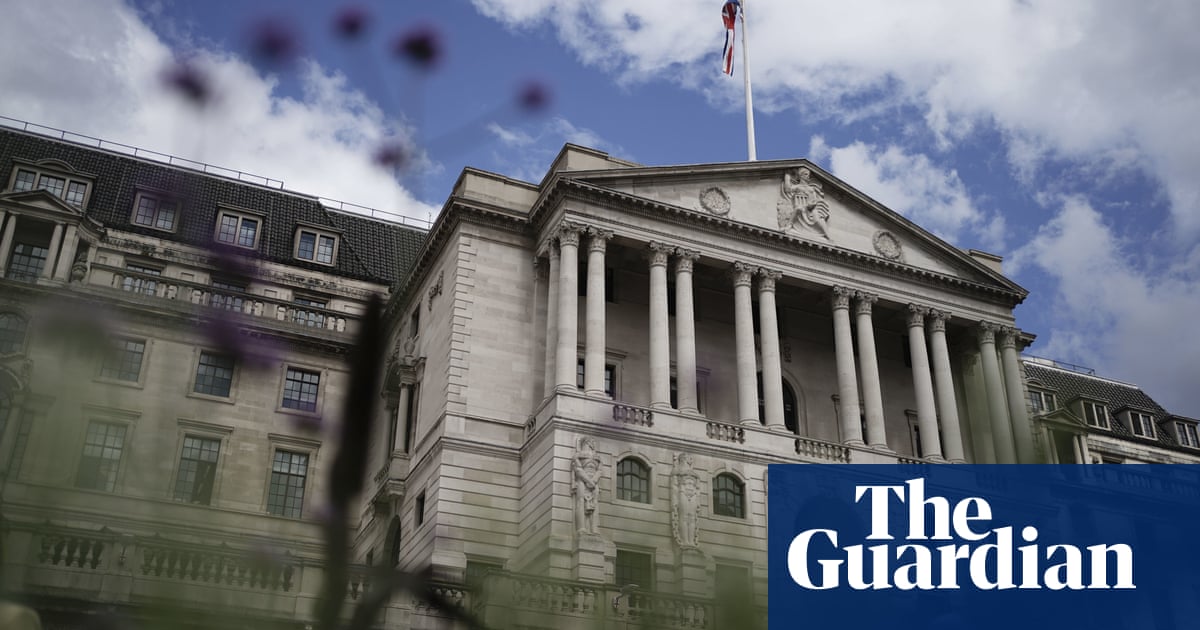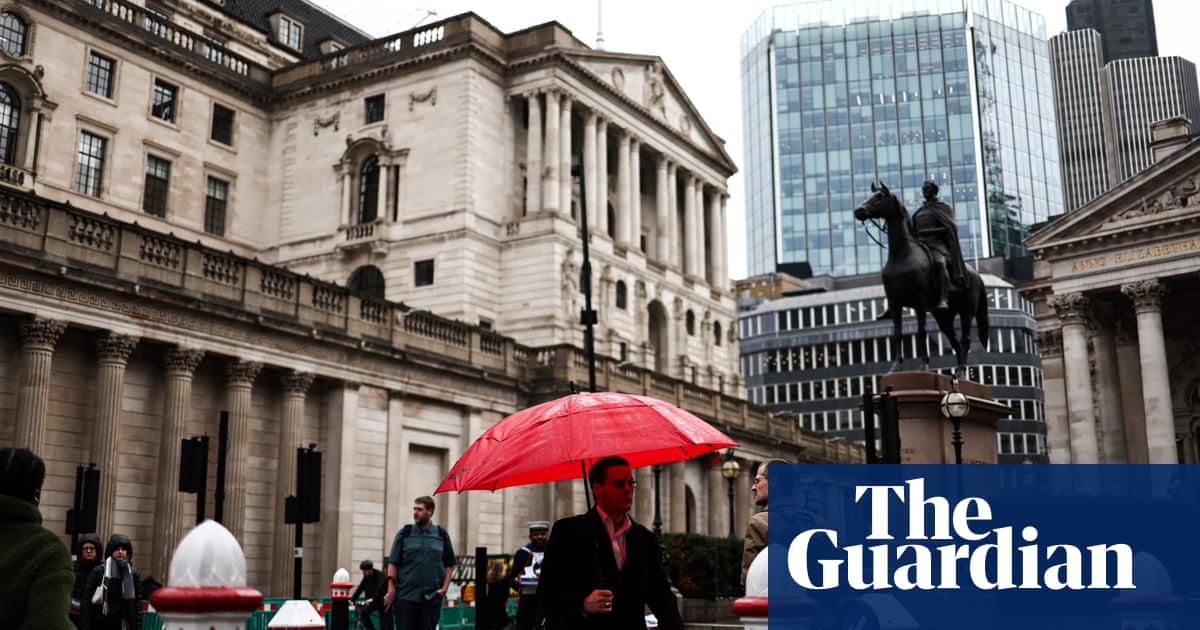
Less than a month ago Andrew Bailey warned the “hard yards” were still to come. Britain’s economic recovery from Covid-19 was fading, inflationary pressures stalking the country would prove temporary and the Bank of England fiddling with interest rates would hardly produce more lorry drivers or make the wind blow for turbines.
Fast forward and the Bank’s governor appears to have changed his tune. Financial markets are betting that a rate increase is due within weeks after comments from Bailey over the weekend did little to dampen frenzied speculation.
In the broadest possible hint that rates could rise from the current 327-year low of 0.1% at the November meeting of the rate-setting monetary policy committee (MPC), Bailey told an online meeting of central bankers that Threadneedle Street would “have to act” to tackle soaring inflation.
Although he was more ambiguous elsewhere in his comments, fixation on the first rate rise since the pandemic began sent borrowing costs on UK government debt to the highest level in two years. From a position at the start of the month when no change in 2021 was anticipated by investors, Goldman Sachs and JP Morgan now view a rise to 0.25% next month as a racing certainty.
With the lack of a stronger steer from the governor, rates are expected to rise by more in the next 10 months than at any point in the past 10 years; rising from its historic low to 1% by August, the highest since the 2008 financial crisis.
Britain has, however, been here before, only to leave Mark Carney compared to an “unreliable boyfriend” for stepping back from the brink of rate rises in 2014. Now economists say his successor could be at risk of history repeating, if lack of action next month leaves the City befuddled by Bailey.
Andrew Sentance, a member of the MPC between 2006 and 2011, said the governor could be readily accused of obfuscation after sending mixed messages. “I don’t think he comes across as managing communications very well. The message he sends often seems to come out by accident rather than by design,” he said.
Although advocating for interest rates to rise, Sentance said it was unlikely that the Bank would move rates in November or December. “It seems to me that their most likely first move is in February. Acting now would send a signal that the MPC feels like it’s behind the curve. It would be admitting it.”
Some experts are asking whether Britain is prepared for a rate rise next month as economic growth fades and questions remain over the impact of the closure of the government’s multibillion-pound furlough scheme. When the MPC meets on 3 November, a day before the interest rate decision, it will have had less than a week to digest the consequences of Rishi Sunak’s post-lockdown budget, which is expected to confirm tax rises and benefit cuts.
Alongside a reduction in universal credit from early October, dollops of demand may already have been sapped from the economy without a rise in borrowing costs, at a time when appetite for consumer credit is far from booming and some measures of household confidence are stuttering.
Early figures from the jobs market suggest redundancy levels remained low after the closure of furlough. Steffan Ball, the chief UK economist at Goldman Sachs, said this, coupled with concerns about short-term inflationary pressures becoming far stickier, could be influencing the Bank’s thinking. “If they want to nip inflation in the bud, they’ll want to do it decisively,” he said.
“When you have fears of high inflation combined with strong wage growth and low unemployment, which we have at the moment, that tends to lead to a rise in inflation expectations.”
However, other economists believe it could take several months for the Bank to have sufficient data from official sources to justify raising rates, and warn that acting early could hit growth.
Danny Blanchflower, a member of the MPC between 2006 to 2009, warned that raising rates too early could choke off the economic recovery from Covid-19 and damage Bailey’s reputation. “Carney’s credibility was shot with the forward guidance. Any time they prognosticated with their forecasts their credibility was shot,” he said.
“If you do this, you’ve lost the plot. How can you possibly do it when you’ve just cut universal credit, you’re talking about doing austerity, and we’ve ended furlough. What are you doing?”
After leaping to 3.2% in August, the highest level in a decade, the Bank expects inflation as measured by the consumer price index will rise above 4% this winter. Driven higher by soaring gas and electricity prices, the gauge for the rising cost of living is expected to remain elevated until at least the middle of next year, before gradually fading back towards the Bank’s 2% target rate.
However, much of the inflationary pressure comes from a boom in global energy markets, as well as international supply chain bottlenecks and shortages of materials. As Bailey has acknowledged, there is little if anything that higher interests can do to offset these pressures. He also argues they are likely to be temporary factors that should fade over time.
Some members of the MPC have warned that inflation could prove persistently high, including its new chief economist, Huw Pill, and Michael Saunders, an external economist on the nine-member rate-setting panel.
At the last MPC meeting in September, two members – Saunders and Dave Ramsden, the Bank’s deputy governor for financial markets – voted to cut short Threadneedle Street’s £895bn quantitative easing bond-buying programme before its natural end point in December. While most members of the MPC believe rate increases could come before the end of QE, none have yet voted for a rise in previous meetings.
Rather than launching a preemptive strike to prevent expectations for inflation becoming deanchored from reality, two other MPC members – Silvana Tenreyro and Catherine Mann, who sit as independent economists on the panel – argue it might be better to wait and see how surging gas prices and shortages of raw materials affect inflation before voting for a rise in borrowing costs.
City investors have focused much less on their comments, preferring to give more weight to its more hawkish members and Bailey’s apparent refusal to guide them elsewhere.
“Just because the usual suspects continue to push their point of view doesn’t necessarily mean they get the extent of hikes the market is pricing,” said Dean Turner, an economist at UBS. “I still think it’s unlikely they’ll move as early as November.”












